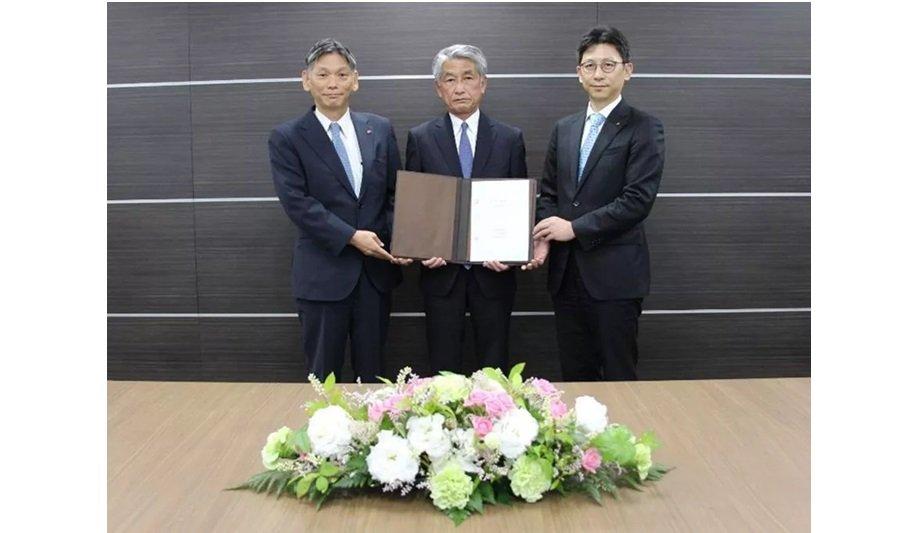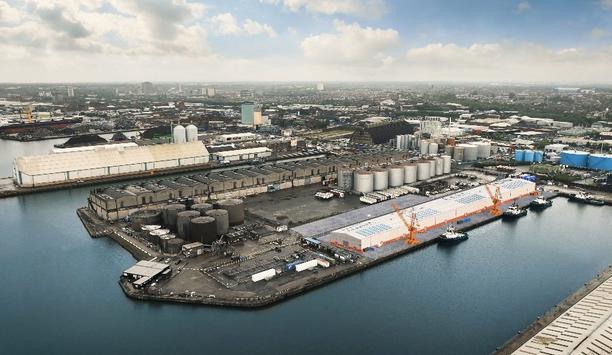Mitsubishi Shipbuilding Co., Ltd., a part of Mitsubishi Heavy Industries (MHI) Group, has received orders from Toyofuji Shipping Co., Ltd. (Aichi Prefecture) and Fukuju Shipping Co., Ltd. Shizuoka Prefecture) for Japan's first methanol-fueled roll-on/roll-off (RORO) cargo ships.
The two ships will be built at the Enoura Plant of MHI's Shimonoseki Shipyard & Machinery Works in Yamaguchi Prefecture, with scheduled completion and delivery by the end of fiscal 2027. The ships will be approximately 169.9 meters in overall length and 30.2 meters in breadth, with 15,750 gross tonnage, and loading capacity for around 2,300 passenger vehicles.
Energy-saving system technology
A windscreen at the bow and a vertical stem are used to reduce propulsion resistance, while fuel efficiency is improved by employing MHI's proprietary energy-saving system technology combining high-efficiency propellers and high-performance rudders with reduced resistance.
The main engine is a high-performance dual-fuel engine that can use both methanol and heavy fuel oil, reducing CO2 emissions by more than 10% compared to ships with the same hull and powered by fuel oil, contributing to a reduced environmental impact.
Methanol-fueled RORO ships
Methanol-fueled RORO ships have already entered into service as ocean-going vessels around the world
In the future, the use of green methanol may lead to further reduction in CO2 emissions, including throughout the lifecycle of the fuel.
Methanol-fueled RORO ships have already entered into service as ocean-going vessels around the world, but this is the first construction of coastal vessels for service in Japan.
Vehicle loading and transport capacity
In addition, the significant increase in vehicle loading capacity and transport capacity per voyage compared to conventional vessels will provide greater leeway in the ship allocation schedule, securing more holiday and rest time for the crew, thereby contributing to working style reforms.
Mitsubishi Shipbuilding, to address the growing needs from the modal shift in marine transport against the backdrop of CO2 reductions in land transportation, labour shortages, and working style reforms, will continue to work with its business partners to provide solutions for a range of societal issues by building ferries and RORO vessels with excellent fuel efficiency and environmental performance that contribute to stable navigation for customers.










